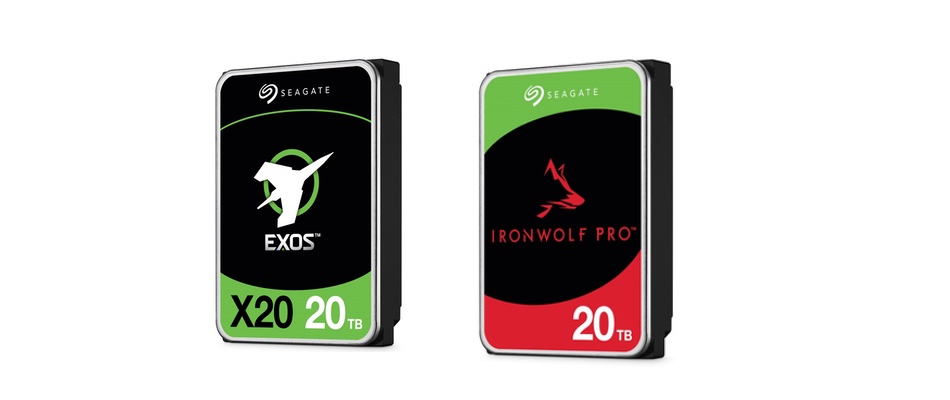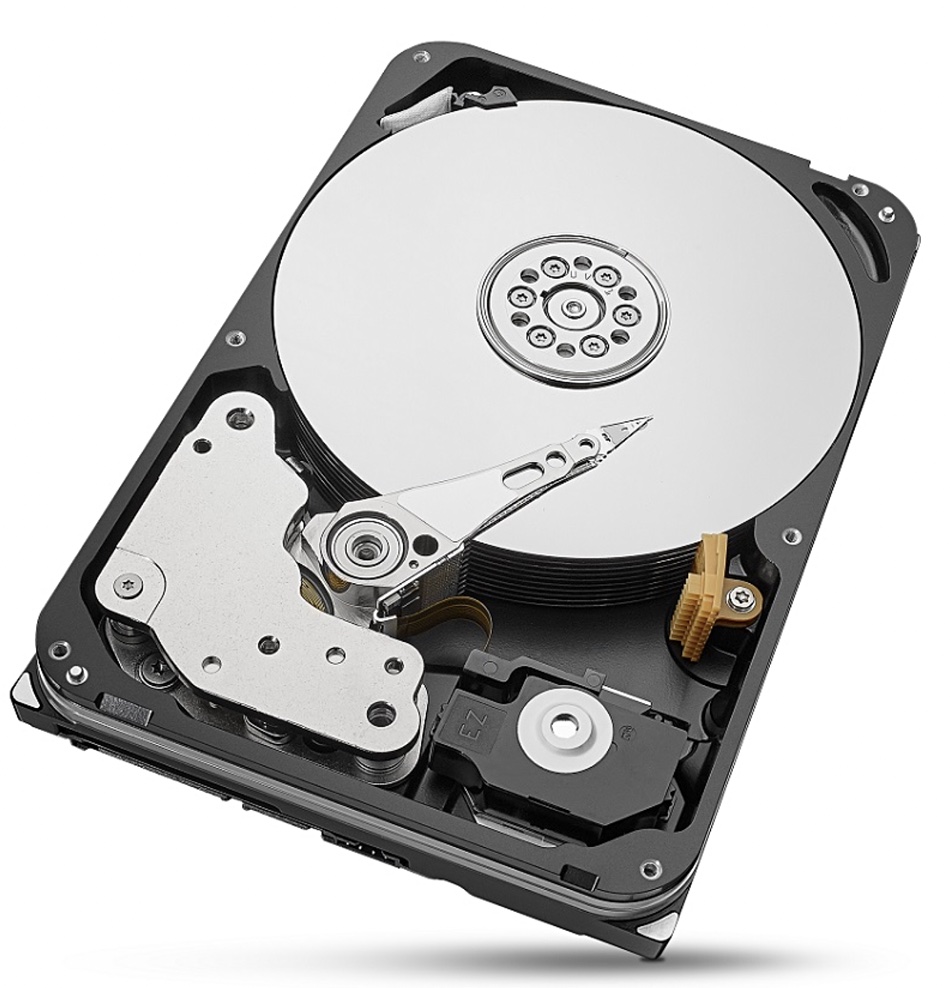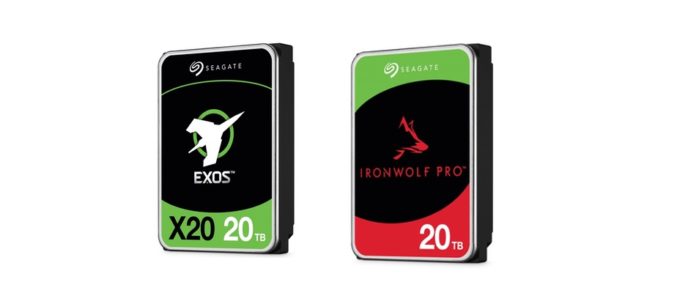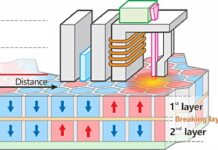Following Western Digital’s September launch of two 20TB drives, Seagate has introduced two 20TB drives of its own: an Exos X20 and an IronWolf Pro, both transferring data 16MB/sec faster than the WD drives.
Seagate says these conventionally-recorded drives — meaning not HAMR — have enhanced caching and employ either 6Gbit/sec SATA (IronWolf Pro, Exos X20) or 12Gbit/sec SAS (Exos X20) interfaces. They have sustained data transfer rates of 285MB/sec compared to the WD pair’s 269MB/sec. That’s only a 5.9 per cent difference, but in an hour of continuous operation would mean the Seagate drives move 57.6GB more than the WD drives, and 1.38TB more in a day. Small differences can mount up.

Yet the Seagate drives only have a 256MB cache capacity, while WD’s 20TB pair are fitted with 512MB ones. It must be down to better caching software.
Like the WD drives, Seagate’s have a 4.16ms latency rating and, we understand, they are 9-platter drives — 2.222TB per platter — and helium-filled. Seagate says they have vibration control and security functions and do not employ shingling.
The Exos X20 is a 24×7 datacentre drive with a 550TB/year workload rating while the IronWolf Pro is a NAS drive with a user workload limit of 300TB/year. They differ in their mean time before failure (MTBF) rating as well. The Exos is a 2.5 million hour MTBF while the IronWolf Pro makes do with 1.1 million hours.

The WD Ultrastar DC HC560 20TB drive also has a workload rating of 550TB/year, as does, we understand, the 20TB Gold drive. WD hasn’t yet announced a 20TB NAS drive — that would be a Red Pro-branded product. Both of its 20TB drives — the Gold and the DC HC560 — are general datacentre drives, like Seagate’s Exos X20.
The 20TB Exos costs $670 while the 20TB Iron Wolf Pro will set you back $650, which includes three years of Rescue Data recovery. For comparison, WD’s 20TB Gold costs approximately $680 and the Ultrastar HC560 $700. These are not the prices volume buyers would pay, but on the face of it the Seagate drives deliver more performance for less money.
We can expect both Seagate and WD to spread their 20TB technology around their product portfolios with surveillance drives as an obvious possibility and, for WD, a NAS product. We might also expect Toshiba to announce its own non-shingled 20TB drive in the next few months.
We have no specific availability information for these two new Seagate drives.








